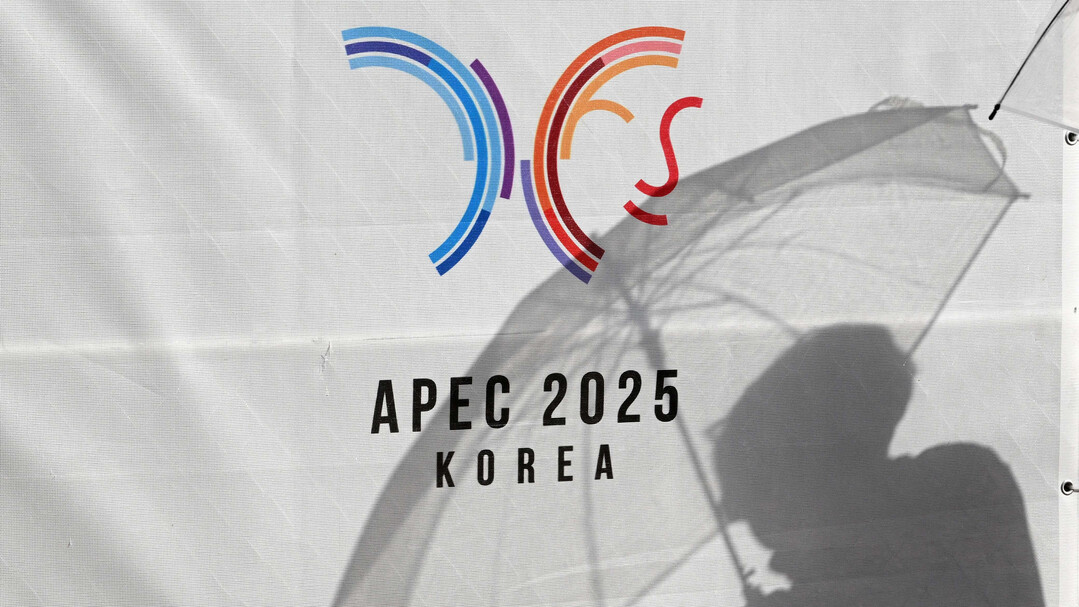
The upcoming Asia-Pacific Economic Cooperation (APEC) Economic Leaders' Meeting, set to take place in Gyeongju, South Korea, is attracting significant global attention. The summit, which will gather leaders from the Asia-Pacific rim—a forum that grew from a ministerial meeting in 1989 to a leaders' summit starting in 1993—holds particular weight this year. It marks the first major multilateral meeting where both U.S. President Donald Trump and Chinese President Xi Jinping will be in attendance since the start of the second Trump administration, intensifying the focus on the escalating U.S.-China strategic rivalry.
Speculation is rife that a high-stakes meeting between Trump and Xi will be held on the sidelines. Trump has consistently labeled China as the U.S.'s primary threat, employing a strategy of pressure and attempted coercion through tariffs. His stated plan to impose tariffs of up to 155% on Chinese goods has recently seen a 100% tariff threat re-emerge after several delays. China has retaliated, strategically shifting its imports of soybeans and pork—products largely from Trump's political base—to countries like Argentina and Brazil, aiming for political damage. Beijing has also deployed its leverage over rare earth elements, essential for advanced manufacturing, by threatening export controls, setting the stage for a tense game of "chicken."
The Imperative of U.S.-China Compromise
The outcome of a potential Trump-Xi summit remains uncertain, with Trump openly suggesting he might cancel the meeting to pressure China into concessions. Also under scrutiny is the possibility of a U.S.-North Korea summit, fueled by Trump's penchant for dramatic, high-profile diplomacy, reminiscent of his previous meeting with Kim Jong-un. Finally, the meeting provides a platform for resolving pending U.S.-South Korea issues, particularly trade tariff negotiations and the modernization of the U.S.-South Korea alliance, where Trump has publicly claimed progress to his advantage.
Trump's "America First" agenda is focused on strengthening core U.S. manufacturing, boosting defense capabilities, and maintaining financial dominance. He generally views time-consuming multilateral negotiations with skepticism, favoring bilateral agreements and the imposition of tariffs—leveraging the immense size of the U.S. market as a core element of national power. He is particularly harsh on allies, whom he perceives as having historically taken advantage of U.S. economic interests and lacking sufficient security leverage. His attendance at the multilateral APEC forum, therefore, suggests a different set of objectives.
The primary necessity for Trump is a deal with Xi. Achieving his domestic goals—which likely include winning next year's midterms and potentially pursuing a constitutional amendment for a third term—hinges on a stable economic environment and suppressed inflation, which necessitates a compromise with China. Despite his aggressive rhetoric, the need for a short-term win makes it highly probable that Trump will pursue a pragmatic truce with Xi, adopting a U.S.-style strategy of calculated patience and temporary strategic retreat.
Conversely, a U.S.-North Korea summit is unlikely to materialize. Kim Jong-un, now possessing nuclear and missile capabilities and enjoying strengthened ties with Russia and recently China, believes time is on his side. He is likely to demand significant concessions that would severely strain the U.S.-South Korea alliance. Such a cost, in terms of damaged alliances and political standing, is one Trump is unlikely to bear.
South Korea's Diplomatic Bind
The most likely area for Trump to achieve a tangible, visible success during his Asia trip is the swift conclusion of a tariff agreement with South Korea. The administration of President Lee Jae-myung is likely facing intense pressure from the U.S., whose domestic political factors increasingly complicate its foreign policy flexibility. However, excessive concessions to the U.S. risk undermining the Lee administration's authority and weakening South Korea's long-term economic prospects, potentially stripping the country of its leverage in maintaining the bilateral alliance. Consequently, the Lee administration is expected to attempt a nuanced negotiation that links trade tariffs with security issues.
The inability to resolve the current friction in U.S.-South Korea relations severely constrains Seoul's foreign policy toward Beijing and Moscow, effectively making practical, pragmatic diplomacy impossible. In the context of a strategic competition that both the U.S. and China treat as a near-wartime state, special privileges granted to the U.S. will be interpreted as hostility by China and Russia. China's recent announcement of sanctions against Hanwha Ocean, a key company in U.S.-South Korea defense cooperation, is a harbinger of things to come.
This diplomatic straitjacket means that a high-level summit between South Korea and China is unlikely to yield substantial reciprocal gains, with Xi Jinping likely minimizing the value of a meeting with President Lee. This predicament highlights the profound quandary facing South Korean diplomacy as it hosts the APEC summit.
While some observers prematurely declare a U.S. victory in the rivalry, citing China's economic challenges versus robust U.S. growth and stable inflation, such judgments overlook the fact that China's growth rate still outpaces that of the U.S. Xi Jinping remains politically strong and committed to an alternative state-building philosophy that rejects the Western model of development. The two great powers will likely remain locked in a global competition well into the mid-21st century, continuing to exert significant worldwide influence. States and corporations must recognize that sustained competition, not the dominance of a single hegemon, is the new normal. From a geopolitical perspective, stability and peace depend on how successfully these two powers manage their uneasy equilibrium. South Korea's main concern should not be the rivalry itself, but rather the risk of a premature and expedient U.S. compromise with China post-Trump. The Lee administration's pragmatic diplomacy must aggressively seek a viable space for South Korea's survival by reassessing its position in the context of the U.S.-China balance.
[Copyright (c) Global Economic Times. All Rights Reserved.]



























